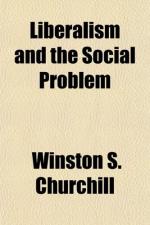|
This section contains 2,307 words (approx. 8 pages at 300 words per page) |

|
Liberalism as a theory about politics and society upholds freedoms of belief, inquiry, expression, action, association and elections. In liberalism, freedom coalesces with value-commitments to equality, individualism, toleration, pluralism, and rationality. All of these commitments have interacted with science and technology in multiple ways.
Classical Liberalism
Liberals differ over determining the nature of freedom. Isaiah Berlin's distinction between negative and positive freedoms (freedom from as against freedom to) is useful in explaining the difference between classical and modern forms of liberalism.
In classical liberalism, freedom is interpreted in terms of a private sphere of non-interference that is supported by the rule of law. Free agents are protected from arbitrary interference, being left to enjoy their possessions, to retain personal beliefs, and to act in preferred ways on the condition that they respect the freedom of others to do the same. Support for private property and free markets goes...
|
This section contains 2,307 words (approx. 8 pages at 300 words per page) |

|


